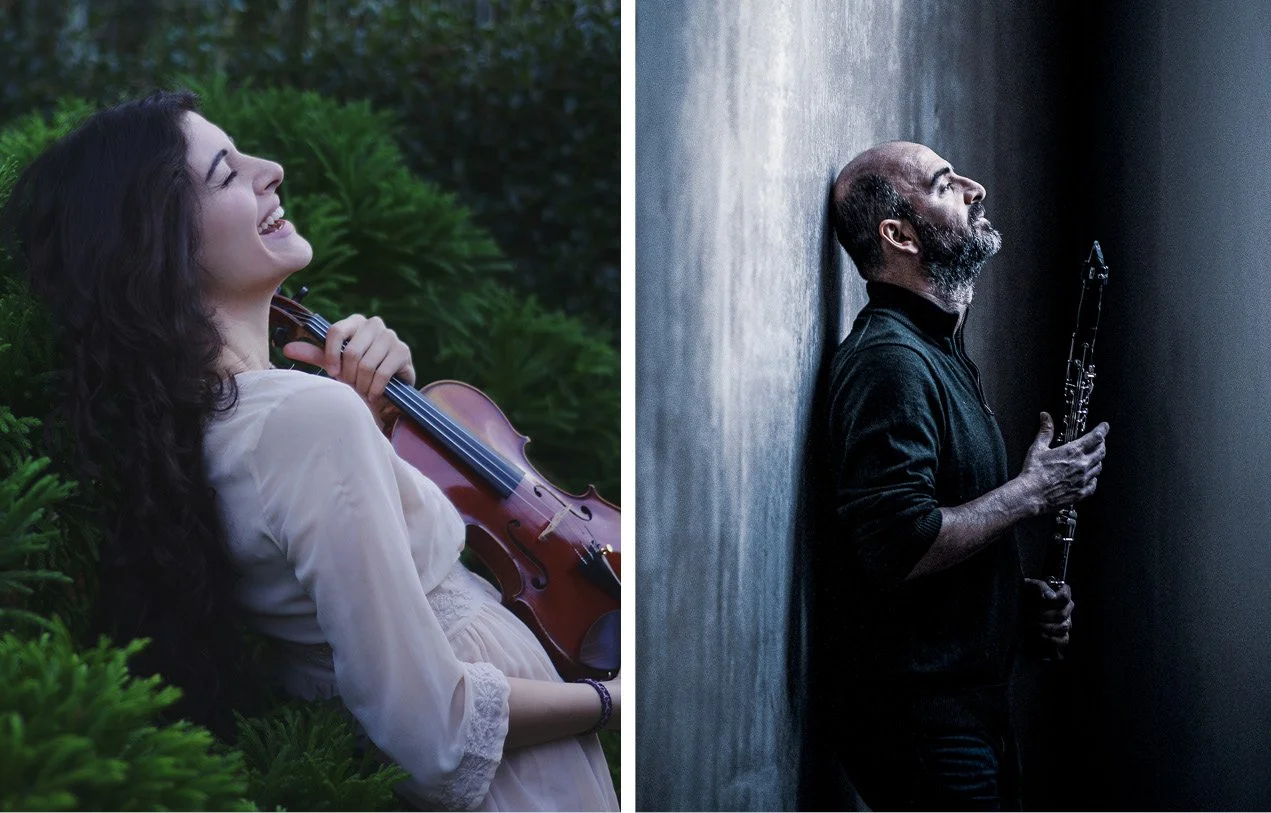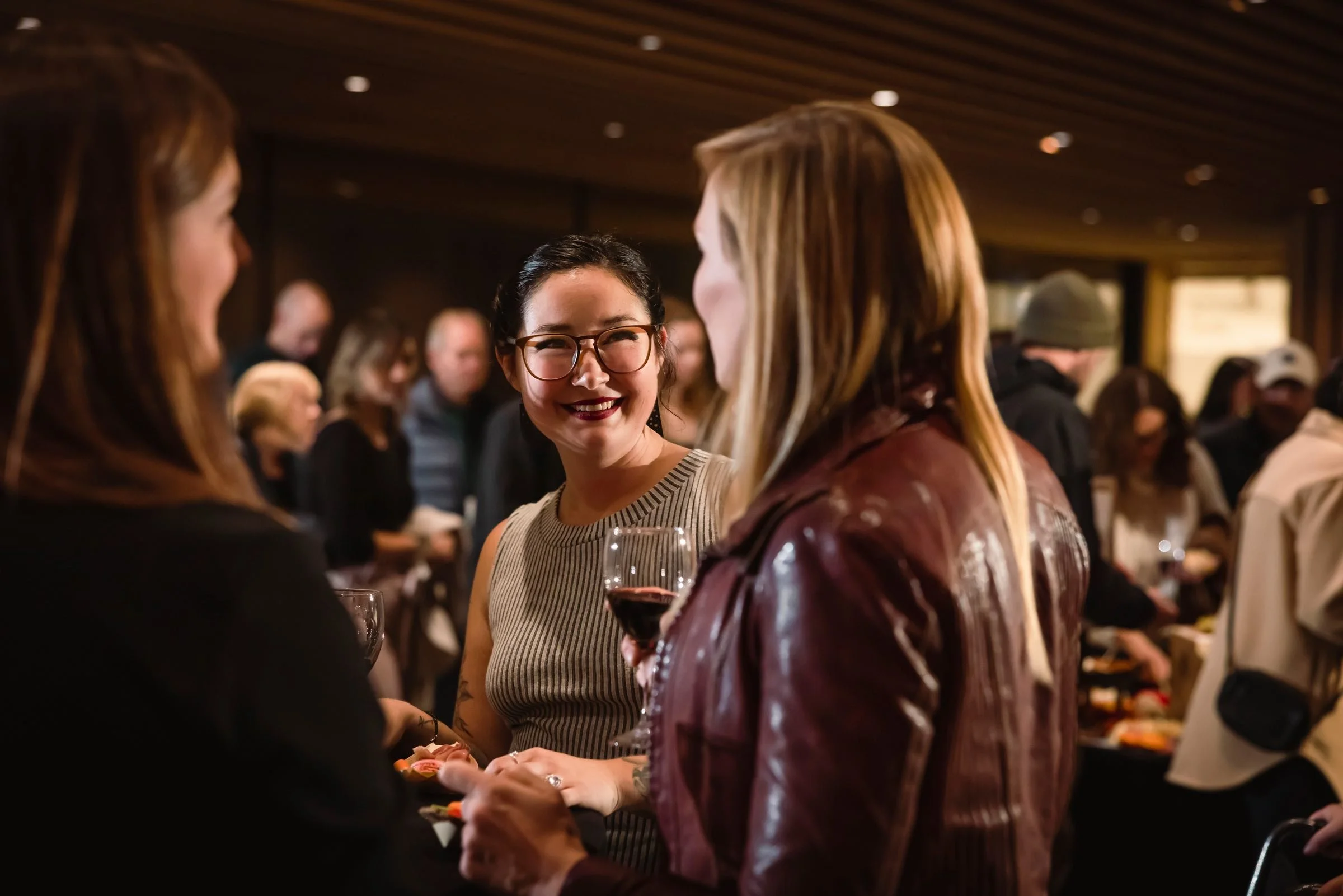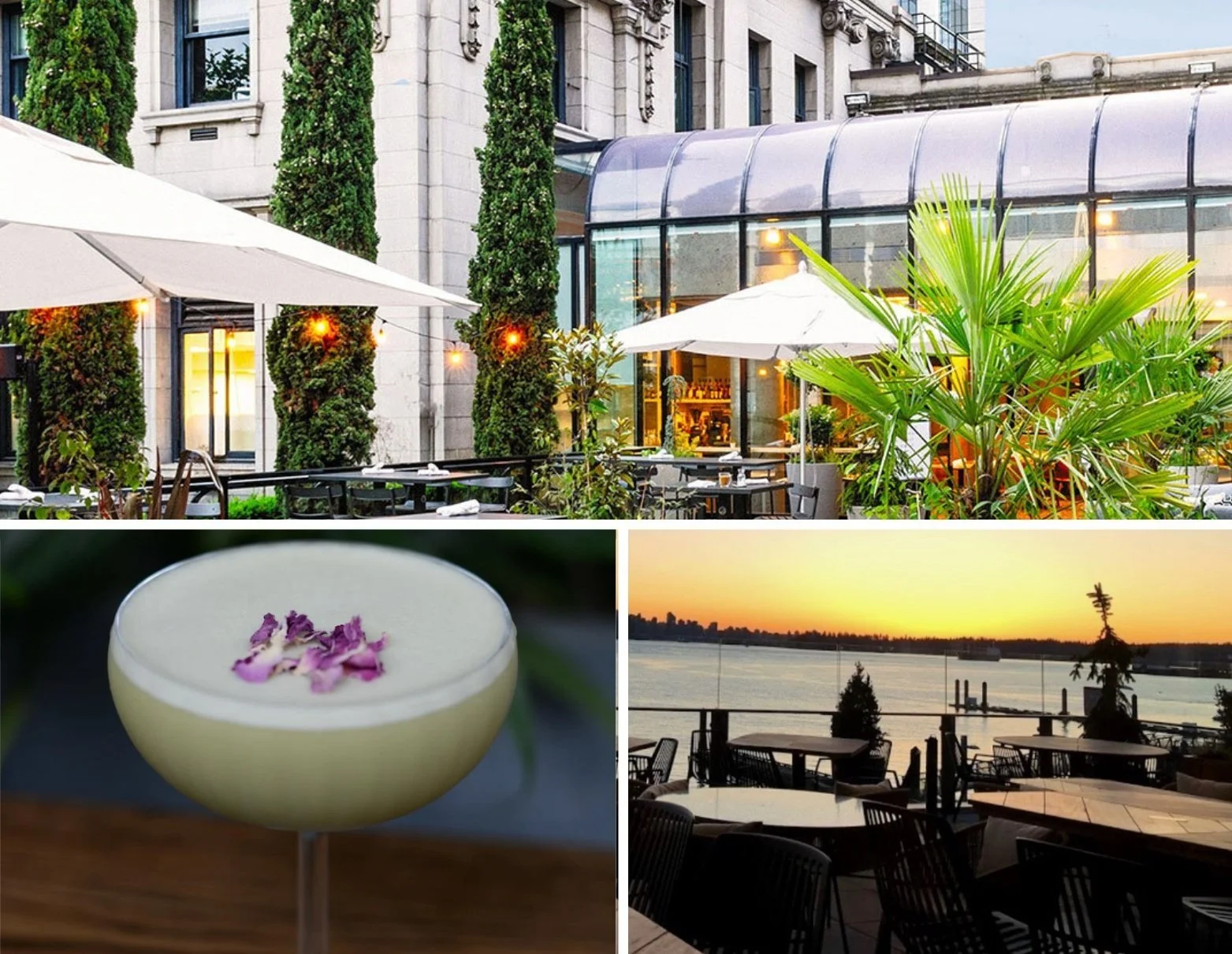Dinuk Wijeratne and friends' The Journeyed Compass searches for the meaning of home through music
With clarinetist Kinan Azmeh and violinist Layale Chaker, gifted pianist-composer -conductor travel from Sufism to Syria in concert at the Chan Centre
Dinuk Wijeratne
Violinist Layale Chaker and clarinetist Kinan Azmeh
The Chan Centre for the Performing Arts presents The Journeyed Compass: Dinuk Wijeratne, Layale Chaker, and Kinan Azmeh on Friday, May 5.
IT DOESN’T TAKE a degree in forensics to identify the unifying factor in Dinuk Wijeratne’s various creative endeavours.
While it’s true that he is simultaneously an extraordinarily gifted pianist, a rising-star conductor, and an increasingly acclaimed composer, he is also at heart a storyteller. And while the multitalented musician says that his upcoming Chan Centre for the Performing Arts concert with clarinetist Kinan Azmeh and violinist Layale Chaker is not necessarily built around a single narrative, it is rooted in a story: how two young musicians became friends while studying abroad, how that friendship blossomed into collaboration, and how it has more recently broadened further through marriage and the shared experience of parenting.
“Kinan and I have been working together since we were students,” Wijeratne explains. “And now that he’s married to Layale, I’m getting to know her. So this is a chance for me to make music with both of them, and I’m very excited.
“One topic that always came up when Kinan and I would hang out was that we would compare our immigrant stories,” he continues. “We would talk about embracing multiple identities, so much so that when I eventually wrote my clarinet concerto for him in 2018, I said to him “This is the topic.’ And it was a time when both of us were really devastated by what was happening in Syria, so I said ‘This piece is not only a response to the conflict, but it’s the summation of all of the questions we’ve asked ourselves about how does one define home?’ And I think we’re excited to explore that with Layale now, because she brings such great perspective.”
In a separate telephone conversation, Azmeh also revisits the beginning of his friendship with Wijeratne and how “home” was a central issue during their student days.
“I left Damascus to study in the U.S. at the same time that Dinuk came to study in New York, and we met at a student residence,” he says. “‘What home means’ was certainly a topic for all these students… That’s an obvious conversation: ‘What’s home?’ But also in the musical context with with Dinuk and I it’s been always interesting that both of us are classically trained, but we are trying to find a musical home, not only in classical music but somewhere beyond genre definition. I think this is where the personal and the musical overlap. Home for me is Damascus, but I’ve been living in New York for the last 22 years, so I am equally at home in New York. But now when I think about this conceptually, I would like to be at home anywhere you put me—and this is the notion of home I would like to give my son, who’s two years old. I want him to be a citizen of the world
“It’s not that this means letting go of identity,” he adds. “The opposite is true: he can accumulate more and more identities as he grows up.”
Is music itself home for these three artists? “Yeah, absolutely,” says Wijeratne, citing the great pianist and conductor Daniel Barenboim in support of this stance. “He said once that he feels at home whenever he’s making music. And it certainly is a way to capture in a bottle something that’s evading you, I guess.”
“I think home has always been the place you want to contribute to without having to justify it,” Azmeh adds. “For me, this is the best notion of home, where you want to give something to whatever surrounds you….And I think musicians have an added advantage: every time I go and play in a new hall, I feel I’m stretching my notion of home. I might be playing for a number of strangers, but after an hour and a half of music, we are no longer strangers. They’ll know a lot about me.”
For The Journeyed Compass, in which they’l be joined by bassist Nicholas Halley and bassist Tom Easley, all three performers will contribute works that reflect various aspects of home—and journeying, too. Azmeh’s Ibn Arabi Postlude meditates on the 13th-century Sufi scholar Ibn Arabi, an Andalusian mystic and poet who ended his days in Damascus. Wijeratne adds that the clarinetist’s Wedding is a “raucous” celebration of Syrian tradition—something Azmeh only began to explore after leaving home.
“I grew up playing Bach, Brahms, Beethoven, and Mozart,” he explains. “But in Damascus, the sonorities around me were Arabic music, Kurdish music, Armenian music, and also American pop, just to add to the mix. So I think of the music that Dinuk and Layale and I do is equally inspired by a multitude of traditions, without being limited by any of these traditions. That’s what we do—and we try to really pay respect to the source material, if we use it. It’s not like ‘Oh, let’s borrow this motif from this thing.’ We have a large appetite for musical vocabularies, a kind of curiosity, but most importantly I think we share a respect for tradition.”
Wijeratne’s Damascene presents a different aspect of home: it’s his view of Azmeh’s birthplace, inspired by a 2009 visit to Syria to perform with his friend. “What Damascene is about is the notion that home is….some kind of ephemeral window in time,” the composer says. “For example, the Dubai that I grew up in was not the Dubai of now; it’s different. So if that is called ‘home’, that is actually a window of time that has sort of passed or closed, and my theory is that is why ‘home’ creates this very bittersweet feeling in people—because it’s very transient, you know, and fluid.”
“Transient and fluid” might also be the operating philosophy behind The Journeyed Compass as a whole. The program will be announced from the stage, and every piece will contain some kind of improvisational aspect, Wijeratne promises. He also notes that while he and Chaker are relatively new collaborators, their musical connection will be eased by their mutual interest in North Indian music, which both have studied formally.
“What I love about working with Kinan and also now with Layale is that we are all from this club of classical musicians who just love improvisation,” he elaborates. “It’s one of my two big preoccupations, and the other one is the meeting of cultures. Improvisation, for me, is how we experiment with freedom, or how we desire freedom as a species. For example, as I’m speaking to you I’m tapping into premeditated material, but at the same time I’m enjoying speaking off the cuff. I think we love straddling that line in our daily life, and music gives you the most incredible opportunity to really explore that mysterious boundary between what is preconceived and what is spontaneous.”
Azmeh does not disagree. “Maybe this lack of borders when it comes to our musical home has been a new home for us,” he says, “where we can go in and out without anyone checking our musical passports!”
Living in that world, even for just an hour or two, is a very enticing prospect.














